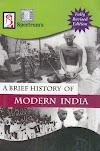Federalism and Sarkaria commission
Federalism
Traditional understanding about the federalism was that it is a division of powers between and among the units of the federation.
- i.e., Federalism → Division of powers → division of responsibility
However in real sense division was not the division of power itself rather it was a way to share the common responsibility of such a big and diverse country so that administrative efficiency may come.
Types of federalism
- Competitive Federalism - If units of the federation competes with each other, it is known as Competitive federalism.
- Co-operative Federalism - If units of the federation co-operates with each other, it is known as Co-operative federalism.
Competitive Federalism - With the respective powers the units of the federation started to compete with each other trying to become better compared to other units of federation giving rise to what is known as Competitive federalism.
For example - The states try to outperform each other on various parameters of governance like Human development, Law and Order, Industrial growth, Disaster management, etc.
Competitive federalism tries to bring out the efficiencies of the units of federation which were not touch till now and against the popular notion, the spirit of competition is not conflict rather than becoming better and this quest of becoming better increases the overall efficiency of Indian States.
Co-operative Federalism - The modern understanding of federalism is that it is a functional arrangement between the centre and the states rather than division of powers between centre and state.
In Co-operative federalism much focus is been on the independence and coordination between the units of federation like centre and state to achieve a common goal of a welfaric society rather than fighting for powers in a confronting mode.
The concept of Co-operative federalism for the first time was explicitly declared in Australis.
However in India, the elements of the Co-operative federalism was inheritably present in the constitutional provisions as well as in extra constitutional provisions.
Elements of Co-operative federalism
Constitutional Provisions
- Legislative mechanism
- Article 252 - Power of Parliament to legislate for two or more States by consent and adoption of such legislation by any other State
- Rajya Sabha
- Consultative mechanism
- Article 263 - Inter-State council
- Article 279(1) - GST Council
- Adjudicatory mechanism
- Article 262 - Inter-State water dispute
- Delegatory mechanism
- Article 258 - Power of Parliament to legislate for two or more States by consent and adoption of such legislation by any other State
- Article 258A - Power of the State to entrust functions to the union
- Fiscal mechanism
- Article - 280 - Finance Commission
- Co-operation in case of trade and commerce
- Article - 301 to 307
- Co-operation with respect to public act and record (Full faith and credit clause)
- Article 261 - It deals with public acts, records and judicial proceedings
Extra-Constitutional Provisions
- Niti Aayog
- NIA
- Zonal Council
- NDRF
- Cental forces, etc.
Legislative mechanism - Under Article 252, if two or more states request parliament to make law for them on state subject then the parliament can make such law leading to co-operation.
Even the presence of Rajya Sabha itself is an example of Co-operative federalism
Consultative mechanism - Under Article 263, president could any time constitute an Inter-State council to bring about a coordinating environment where centre and state can have discussion/consultation in solving a common problem.
Such inter-state council can be assigned with -
- The task to enquire and advise upon the disputes originating between the centre and states, centre and UT or among the states.
- It can make recommendations for better coordination of policy and action with respect to the subjects of common interest.
It is only a recommendatory body and meets at least thrice a year.
The PM of India is the ex-officio chairman of the council. Other members include 6 cabinet ministers, CM of all states, Delhi, Puducherry and Jammu & Kashmir, administrators of UTs which do not have legislative assemblies.
Note - 1st Inter-State council was constituted in 1991.
Adjudicatory mechanism - Under Article 262, parliament by law determine the mechanism for settlement of disputes with respect to the use, distribution and control of the water of inter-state rivers.
Thus, parliament enacted Inter-State river dispute act 1956 and Inter-State river and river valley act 1956 through which parliament authorises the union government to form tribunals to adjudicate on inter-state river water disputes so that conflict can go and cooperation can come.
Delegatory mechanism - Under Article 258, president with the prior consent of the governor of a state can delegate some of the executive function of the union to the state/states.
Similarly, under Article 258A governor with the prior consent of the president can delegate to the union some of the executive function of the state leading to cooperation.
Fiscal mechanism - Under Article 280, president appoints Finance Commission after every 5 years to make recommendations regarding the mechanism of distribution of revenue between the centre and state besides centre share GST with States, also the special grants given by the centre to the states for the development of tribals and backward areas leads to cooperation.
Cooperation with respect to Public Act & Record (Full faith and credit clause) - Under Article 261, all the public acts and records of any state shall be given due recognisation and enforceability like the status of the latter state itself.
Similarly, all the decisions of civil court of a state is given due recognisation and effect throughout the country leading to cooperation.
Cooperation in case of trade and commerce - Under Article 301 to 307, there is a limitation on law making powers of legislation whether union or state in the matter of imposing restrictions on the free movement of goods and services across the country.
All India Services also strengthens cooperative federalism.
Extra Constitutional mechanism
- Niti Aayog
- NIA
- CIA
- Zonal Council
- NDRF
- Central forces (Army, CRPF, CISF, etc.)
Zonal Council - Under the state reorganisation act 1956, 5 zonal councils were created and in 1971 a separated zonal council for the North-Eastern states was created.
Composition of Zonal Council - Union Home minister is the ex-officio chairman of the zonal council which also include CM of all the states and UTs in respective zones as well as administrators of UTs in the zone.
Functions of Zonal Council
- To suggest a route for the coordination and development of the state in the zone.
- Finding a solution related to boundary and linguistic disputes among the states in the zone.
- Development of common transportation link in the zone.
Other types of federalism
- Cooperative competitive federalism
- Fiscal federalism
- Asymmetrical federalism
Co-operative Competitive federalism - In 2017, NITI Aayog gave a call for cooperative competitive federalism by replacing cooperative federalism.
In it the unit of federation shall continue to cooperate with each other without giving up the spirit of competition. This helps them to become complement of each other and still becoming better on the same parameter due to the spirit of competition and thus achieving overall growth and development.
Fiscal federalism - Federalism has been tried to established even in the area of finances, since the units of federations, i.e., states and centre have their respective sources of finance but still states are largely dependent upon the centre for meeting its fiscal requirement which makes us conclude that in India fiscal federalism is largely weak though finance commission, GST council and permission given to state to directly invite foreign investment have strengthen fiscal federalism to some extent.
Asymmetrical Federalism - Centre sharing asymmetrical relationship with various states and thus give rise to asymmetry in India's federal structure.
For example -
- Some states has got more seats in union legislature and some got less.
- Some states were given special status and were given special funds.
- Some states enjoy little more autonomy that what enjoyed by the others (North-Eastern States)
Sarkaria Commission
Sarkaria commission's recommendations to improve centre-state relationship and thus strengthens cooperative federalism.
Sarkaria commission in its report identifies the major reasons of disputes between centre and states.
They are -
- Misuse of Article 356
- Misuse of the officers of All India Services
- Misuse of the office of the governor
- Financial constraints faced by the states
- Deployment of para-military forces
- Weight of legislative subjects in the favour of the centre
Thus, recommendations were given by the Sarkaria commission to strengthen cooperative federalism are -
- Committee recommended that except for tax related issue all other residuary subjects must be transferred from union list to the concurrent list.
- When the union government proposes to carry out a legislations on the subject mentioned in the concurrent list, the state should be compulsorily consulted.
- Except where uniformity is required at the national level, parliament should not make laws on subjects of concurrent list.
- Provisions of Article 258 regarding delegations of functions should be used more liberally.
- Provisions of Article 252 may be amended so that the life a the law made should be fixed to a maximum period of 3 years.
- Central government should continue to have the power to deploy central forces in the states. However, if the situation is not exceptional state may be consulted before deploying the forces in the state.
- In the matter of appointment of finance commission and determination of matters referred to it, state government may be consulted.
Previous Article - Parliamentary Committees
Next Article -
Notes on other subjects
Optional Subject
Note - This is my Vision IAS Notes (Vision IAS Class Notes) and Ashutosh Pandey Sir's Public Administration Class notes. I've also added some of the information on my own.
Hope! It will help you to achieve your dream of getting selected in Civil Services Examination 👍





0 Comments